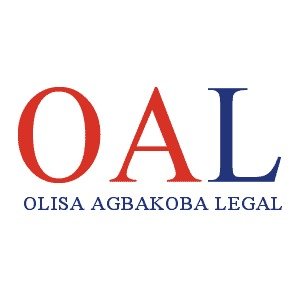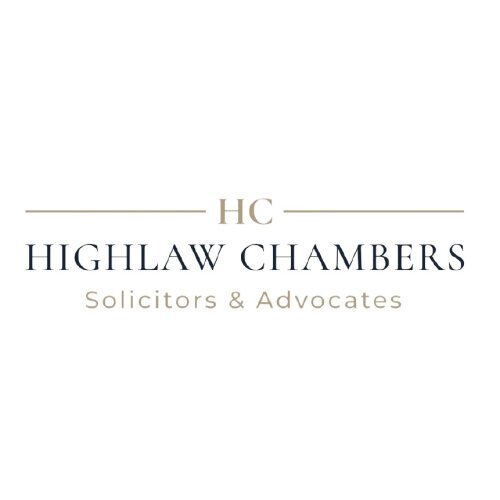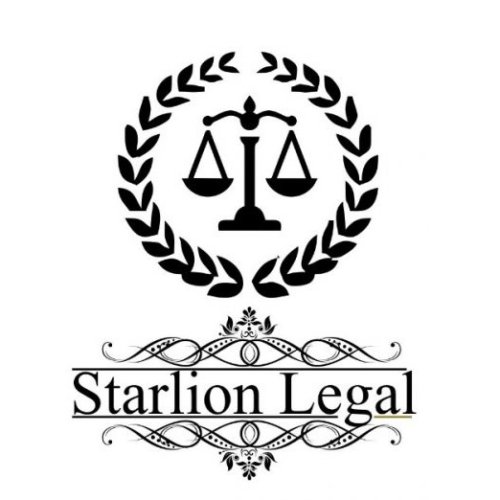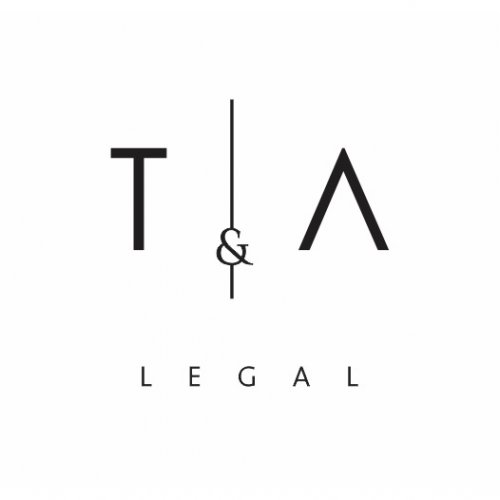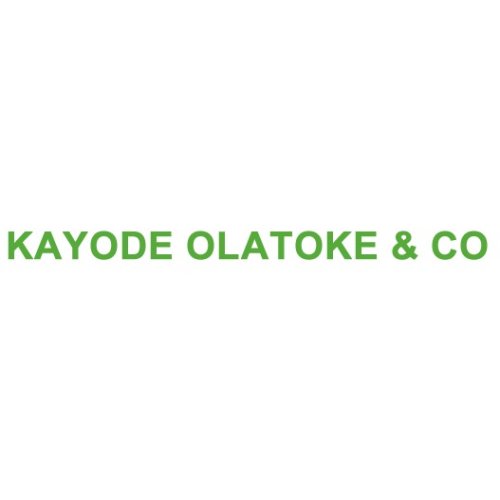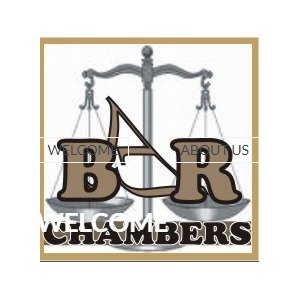Best Bankruptcy & Debt Lawyers in Nigeria
Share your needs with us, get contacted by law firms.
Free. Takes 2 min.
Or refine your search by selecting a city:
List of the best lawyers in Nigeria
Legal guides written by Adeola Oyinlade & Co:
- Procedure and Requirements for Work Permit and Visas in Nigeria
- The Step-By-Step Procedure of How to Apply for Microfinance Bank License Online in Nigeria
- How to Ensure the Smooth Recognition and Enforcement of Foreign Judgments in Nigeria
About Bankruptcy & Debt Law in Nigeria
Bankruptcy and debt law in Nigeria primarily govern the financial obligations and the restructuring processes for individuals and businesses who are unable to repay their outstanding debts. The main legal frameworks dealing with insolvency in Nigeria include the Companies and Allied Matters Act (CAMA) for companies, and the Bankruptcy Act for individuals. These laws outline the processes for declaring bankruptcy, the rights of creditors, and the protections available to debtors. The objective is to ensure fair treatment of all parties involved while enabling debtors the opportunity to restructure and regain financial stability.
Why You May Need a Lawyer
Engaging a lawyer for bankruptcy and debt matters in Nigeria can provide several benefits. Common situations where legal assistance may be required include:
- Filing for bankruptcy: A lawyer can guide you through the necessary legal proceedings and documentation to declare bankruptcy legally and effectively.
- Negotiating with creditors: Lawyers can negotiate favorable terms and repayment plans with creditors on your behalf.
- Understanding your rights: Legal expertise can help you comprehend your rights as a debtor or creditor and ensure that all actions taken are legally justified.
- Preventing asset liquidation: A lawyer can help prevent or minimize the forced sale of your assets to pay off debts.
- Dispute resolution: Lawyers can assist in resolving disputes that arise between creditors and debtors, maintaining fair practice and compliance with the law.
Local Laws Overview
The key aspects of Nigerian laws relevant to bankruptcy and debt include:
- Bankruptcy Act: This act guides the process for personal bankruptcy, focusing on the liquidation of a debtor’s assets and their distribution among creditors.
- Companies and Allied Matters Act (CAMA): Governs corporate insolvency and provides provisions for company winding-up, including appointment of liquidators and asset distribution.
- Debt Recovery Laws: Various regulations and legal frameworks govern the recovery of debts, including the rights and responsibilities of financial institutions and debtors.
- Schemes of Arrangement: CAMA allows financially distressed companies to enter into arrangements with creditors to reorganize their debts and avoid liquidation.
Frequently Asked Questions
What is the difference between bankruptcy and debt relief?
Bankruptcy is a legal status for individuals or businesses that cannot repay their debts, leading to liquidation or restructuring. Debt relief involves measures to ease the burden of debt through negotiations, reduced interest rates, or extended repayment terms.
Who can declare bankruptcy in Nigeria?
In Nigeria, both individuals and businesses can declare bankruptcy. The Bankruptcy Act covers individuals, while CAMA deals with corporate insolvency.
How does bankruptcy affect my assets?
Upon declaring bankruptcy, your non-exempt assets may be liquidated to repay creditors. Specific assets might be protected based on legal exemptions.
What are the implications of declaring bankruptcy?
Bankruptcy can impact your credit rating, limit access to further credit, and result in the loss of assets. However, it can also offer a fresh start by clearing unmanageable debt.
Can I file for bankruptcy without a lawyer?
Though legally possible, navigating bankruptcy without a lawyer can be complex and may not yield the best outcome. Legal advice is highly recommended.
How can creditors recover debts from bankrupt individuals or businesses?
Creditors can file claims during bankruptcy proceedings to recover debts through asset liquidation or recovery from future earnings.
Can businesses continue operations during bankruptcy proceedings?
Yes, businesses may continue operations if they enter into restructuring arrangements or have protection under a Scheme of Arrangement to avoid liquidation.
How long does bankruptcy resolution take in Nigeria?
The duration varies depending on the complexity of the case, the nature of the debts, and court schedules. It can range from several months to years.
What is a Scheme of Arrangement?
A Scheme of Arrangement is a court-approved agreement between a debtor and creditors to reorganize business debts and avoid liquidation, often under CAMA.
Can a bankruptcy order be reversed or annulled?
Yes, if a debtor settles their debts or proves they should not have been declared bankrupt, a bankruptcy court order can be annulled.
Additional Resources
For assistance with bankruptcy and debt-related issues, consider consulting these resources:
- Nigerian Bar Association: Offers support in finding qualified bankruptcy attorneys.
- Bankruptcy Court of Nigeria: The court overseeing bankruptcy cases with resources for legal processes.
- Central Bank of Nigeria (CBN): Provides guidelines on debt recovery and financial management reforms.
- Securities and Exchange Commission (SEC): Offers insights for businesses undergoing restructuring.
Next Steps
If you need legal assistance in bankruptcy or debt matters, consider the following steps:
- Evaluate your financial situation and determine if legal intervention is necessary.
- Gather all relevant financial documentation, including statements of assets and liabilities.
- Seek recommendations for experienced bankruptcy lawyers or use resources like the Nigerian Bar Association to find a reputable attorney.
- Consult with a lawyer to discuss potential legal strategies, negotiate with creditors, or file necessary court applications.
- Engage in continuous financial management and legal follow-ups to ensure compliance with post-bankruptcy requirements or reorganization plans.
Lawzana helps you find the best lawyers and law firms in Nigeria through a curated and pre-screened list of qualified legal professionals. Our platform offers rankings and detailed profiles of attorneys and law firms, allowing you to compare based on practice areas, including Bankruptcy & Debt, experience, and client feedback.
Each profile includes a description of the firm's areas of practice, client reviews, team members and partners, year of establishment, spoken languages, office locations, contact information, social media presence, and any published articles or resources. Most firms on our platform speak English and are experienced in both local and international legal matters.
Get a quote from top-rated law firms in Nigeria — quickly, securely, and without unnecessary hassle.
Disclaimer:
The information provided on this page is for general informational purposes only and does not constitute legal advice. While we strive to ensure the accuracy and relevance of the content, legal information may change over time, and interpretations of the law can vary. You should always consult with a qualified legal professional for advice specific to your situation.
We disclaim all liability for actions taken or not taken based on the content of this page. If you believe any information is incorrect or outdated, please contact us, and we will review and update it where appropriate.
Browse bankruptcy & debt law firms by service in Nigeria
Nigeria Attorneys in related practice areas.
Browse bankruptcy & debt law firms by city in Nigeria
Refine your search by selecting a city.






